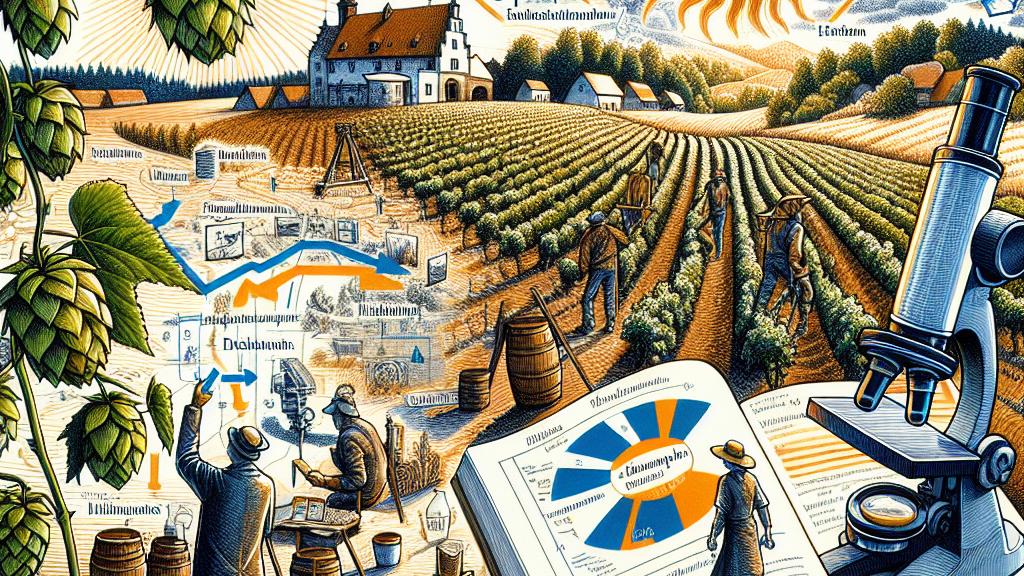Germany's Beer Sector: Education as a Shield Against Climate Change
Overview
- Germany's beer industry is grappling with severe climate challenges affecting farms and breweries.
- Essential education and innovative research drive the development of resilient hop varieties.
- The survival of the Hallertau region, a critical hub for brewing, hinges on effective plant adaptations.

The Effects of Climate Change on German Beer
In Germany, the iconic beer sector faces a storm of challenges brought on by climate change. Farmers are encountering extreme weather patterns, such as soaring temperatures and unpredictable droughts that threaten their crop yields. Notably, the Hallertau region, often celebrated as the 'cradle of hops,' stands as a focal point for this struggle. This lush area is indispensable, producing the hops that flavor traditional German beers. As such, the urgency to address climate change has never been clearer; it's about safeguarding a centuries-old tradition while ensuring that the future remains bright for both farmers and brewers alike. Consequently, the industry is turning to integrated education and research, investing in innovative strategies that not only preserve but enhance its legacy.
Innovative Research Initiatives
A remarkable initiative is unfolding at the Society of Hop Research, located just north of Munich. This pioneering hub is nurturing an impressive collection of around 7,000 seedlings, each bred specifically to withstand the adverse effects of climate change. These aren't just ordinary plants; they represent hope for a resilient future in hops cultivation. By combining cutting-edge scientific research with age-old farming traditions, this initiative is producing varieties that stand a chance against rising temperatures and devastating diseases. But here's the kicker: students engaged in vocational programs are actively involved in this research. They experience firsthand the intricacies of plant development, learning about successful methodologies and also facing failures. Every plant's journey provides invaluable lessons not just for individual growth, but also for the entire beer industry, reinforcing the importance of adaptability in an uncertain climate.
The Role of Education in the Beer Industry
Education is revolutionizing the German beer industry, serving as both a foundation and a bridge to the future. Comprehensive vocational and university programs are no longer mere educational tracks; they are essential paths for cultivating innovative brewers and farmers. For instance, through practical partnerships with local breweries, students gain real-world experience that enhances their classroom learning. They dive deep into sustainable practices, modern brewing techniques, and the science behind hops cultivation. This direct involvement fosters a vibrant exchange of ideas and ensures that future industry leaders are well-equipped to tackle complex challenges, such as those posed by climate change. Thus, as the industry navigates these turbulent waters, education remains the beacon guiding them towards a resilient and prosperous future, ensuring that the legacy of German beer not only survives but thrives.

Loading...